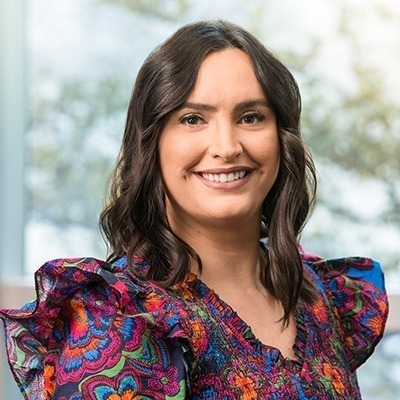The endocrine system is made of eight glands that produce many hormones. Hormones go through the bloodstream to the organs and tissues telling various parts of the body how to form and function. These hormones are responsible for growth, development, reproduction, sexual function, mood, and metabolism (how the body converts food and drink to energy).
Endocrine disorders occur when the body makes too much or too little of a hormone or doesn’t use the hormone correctly.
At our Endocrine Clinic, we evaluate, monitor, and treat children with endocrine disorders, from infancy through adolescence.
Make An Appointment
Clinic Hours
Omaha: Monday – Friday 8 a.m. – 4:30 p.m.
Lincoln: Monday – Friday 8 a.m. – 4:30 p.m.
Sioux City: Rotating days two times a month 8:30 a.m. – 4 p.m.
Phone 402-955-3871 | Fax 402-955-8738
What Sets Children’s Apart?
We are the only providers of pediatric endocrinology care within the state of Nebraska:
- Our team consists of pediatric endocrinologists, pediatric nurse practitioners and physician assistants, nurse educators, social workers, case managers, dieticians, behavioral health specialists, and child life specialists.
- We are the only site that provides multispecialty care in one location. Our multispecialty clinics include a Thyroid Clinic and Osteogenesis Imperfecta (OI) Clinic.
- Our Diabetes Education Program is the only pediatric-specific program in the state of Nebraska that is accredited by the American Diabetes Association. This accreditation recognizes programs that meet National Standards for Diabetes Self-Management Education. These standards have been shown to improve results and quality of life for patients with diabetes, reduce hospitalizations, and lower costs of care.
- The Children’s endocrinology providers participate in research groups that help them stay abreast of the most up-to-date information on caring for children with endocrine disorders. One of these is the Type 1 Diabetes TrialNet, a research group dedicated to finding a way to prevent type 1 diabetes.
- Our DRIVE Clinic takes a specialized approach to managing children with diabetes by offering ongoing assistance from providers, behavioral health specialists, social workers, case managers, nurse educators, dieticians, and others support services.

Diabetes Patient Education
Learn about caring for your child with diabetes and managing their condition. These resources are available your convenience.
Adrenal Insufficiency
Adrenal Insufficiency Information
Conditions We Treat
Our team of specialists can diagnose and treat many types of endocrine conditions, including:
-
Adrenal Gland Conditions
The adrenal gland is responsible for producing hormones such as cortisol and aldosterone which help regulate metabolism and blood pressure and assist the body’s response to stress.- Addison’s Diseases (Arenal Insufficiency) is when the body does not produce enough cortisol and/or aldosterone. This may cause weight loss, loss of appetite, tiredness, low blood pressure, low blood sugar, or salt/water imbalance.
- Cushing’s Disease is when there is too much cortisol in the body. This may cause obesity around the upper body, weakened muscles, round flushed face, stretch marks, easy bruising, or increased blood pressure.
-
Diabetes
Insulin is a hormone that carries sugar from food to the body’s cells for energy. But when the body doesn’t get enough insulin or doesn’t use it well, diabetes develops because sugar remains in the blood. There are two main types of diabetes:- Type 1: This used to be referred to as “juvenile diabetes.” With type 1, the body does not make any insulin. There is currently no way to prevent type 1 diabetes.
- Type 2: With this form of diabetes, the body either does not create enough insulin, or does not use insulin well. Type 2 diabetes can be affected by lifestyle factors, such as a poor diet or not getting enough exercise. It used to be called “adult-onset diabetes.” However, with the increase in childhood obesity, it has become more common in children and young adults.
-
Hyperthyroidism And Hypothyroidism
This is when the thyroid gland doesn’t work as it should. The thyroid is responsible for producing the thyroid hormone, which plays a significant role in metabolism, growth, and organ function.- Hyperthyroidism (Overactive Thyroid): The thyroid produces too much thyroid hormone. Body function and metabolism speed up, causing symptoms such as nervousness, difficulty sleeping, weight loss, rapid heartbeat, or irritability. At first, hyperthyroidism can make a child feel very energetic. However, it can eventually cause the body to break down, leading to constant tiredness.
- Hypothyroidism (Underactive Thyroid): The thyroid does not produce enough thyroid hormone. Body processes begin slowing down, causing symptoms such as weight gain, dry skin, hair loss, constipation, and exhaustion.
-
Polycystic Ovary Syndrome (PCOS)
This is an imbalance of reproductive hormones in women of childbearing age. This can cause problems in the ovaries — the organs that make the egg that is released each month — and lead to irregular periods, fertility difficulties, acne, weight gain, or hirsutism (hair on parts of the body where usually only men have hair). -
Puberty Concerns
Puberty is the time in life when a boy or girl becomes sexually mature. Typically, boys begin puberty between ages 12 and 16, and girls begin between ages 10 and 14. Precocious puberty is when puberty begins too early. Delayed puberty is when it begins later than normal.
Other conditions we treat include:
- Concerns about your child’s growth
- Klinefelter Syndrome
- Noonan Syndrome
- Prader-Willi Syndrome
- Russel-Silver Syndrome
- Septo Optic Dysplasia
- Turner Syndrome
We offer a wide range of treatments and services. These include:
- Diabetes management: Helping children learn how to lead a healthy, normal life with diabetes. We teach families about checking blood sugar levels, taking insulin, and developing positive habits (e.g., healthy diet, regular exercise) to keep diabetes under control.
- Insulin pump management: Teaching families how to use their child’s insulin pump — a small computerized device that delivers insulin to a child with diabetes.
- Continuous Glucose Monitor (CGM) Training: Teaching families how to use their child’s CGM, which is a small sensor tube that is placed under the skin, where it takes continuous readings of glucose levels. This information can be sent to a receiving device or phone.
- Growth hormone management: Prescribing hormone injections for children who have growth hormone deficiency. This treatment allows children to grow and develop, and is usually given over the course of several years.
- Puberty suppression for precocious puberty: Prescribing a medication that suppresses the release of the hormones that stimulate early puberty. Delaying the onset of puberty until the typical age (ages 12 and 16 in boys, and ages 10 and 14 in girls) increases the likelihood that a child will have regular psychosocial development, and will eventually reach a normal adult height.
- Thyroid Disease management: Prescribing treatment plans and medications for all thyroid conditions, including hypo- and hyperactive thyroids, as well as thyroid cancer.
- Bisphosphonate infusions: Medications that provide pain relief and improved bone density in children with osteogenesis imperfecta.
Caring For The Entire Patient
An endocrine disorder doesn’t always start and end with the endocrine system. It can affect other systems of the body, as well as a child’s emotional or psychosocial well-being.
That’s why our patients and their families have access to a variety of resources. Social workers, nutritionists, behavioral health specialists, and providers from many different medical specialties are all on hand to support you and your child manage an endocrine disorder.
Learn more about our support services.
Our Specialists
What To Do Next
For Patients
Make An Appointment
To make an appointment, call 402-955-3871 and press ‘1’ to reach Centralized Scheduling.
Seeing An Endocrine Specialist
When a pediatrician suspects an endocrine problem, your child may be referred to an endocrinologist. Once the pediatrician has made an official referral within the Children’s system, you will be able to schedule an appointment.
If your child has diabetes, please bring meters, insulin pumps, and/or continuous glucose monitoring (CGM) devices to the appointment.
Helpful Resources
JDRF is committed to improving lives today and tomorrow by accelerating life-changing breakthroughs to cure, prevent and treat T1D and its complications. To seek educational and supportive resources from JDRF resources click here.
For Referring Providers
The Physicians’ Priority Line is your 24-hour link to pediatric specialists at Children’s for emergency and urgent consults, physician-to-physician consults, admissions, and transport services. Call 855-850-KIDS (5437).
Learn more about referring patients.







